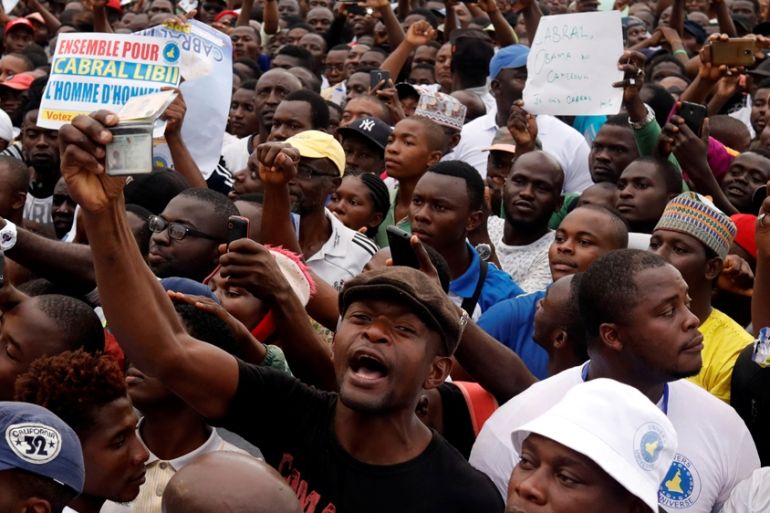Polls close in Cameroon’s parliamentary, municipal elections
Low turnout reported in English-speaking regions, where separatist violence has displaced hundreds of thousands.

Polls have closed in Cameroon’s long-delayed parliamentary and municipal elections, held for the first time in seven years amid security concerns and political division.
Sunday’s polls witnessed a low turnout of voters in the English-speaking Northwest and Southwest Regions, the epicentre of separatist violence that has displaced hundreds of thousands of people.
Keep reading
list of 3 itemsCameroon grants ‘special status’ to Anglophone region amid unrest
Cameroon’s opposition leader Maurice Kamto released
A clash occurred in Muyuka, a rebel stronghold in the Northwest Region, although fighting takes place almost daily in both English-speaking regions bordering Nigeria.
There was also a shooting at Buea, the main town in Southwest region, and in Kuma in the same region, witnesses said.
In the country’s French-speaking regions, voting proceeded normally. The elections were being held with a heavy military presence.
“For the opposition, if there is a low turnout, that means much of the same. Most of these elections that have happened under President Paul Biya have been called into question by the opposition,” Al Jazeera’s Nicolas Haque reported.
Speaking from Douala, Cameroon’s biggest city and economic hub, Haque said there were no long queues outside the polling stations.
The elections for the country’s legislature and local councils took place for the first time in seven years, after two postponements.
Despite the delays, campaigning had been low-key.
The ruling Cameroon People’s Democratic Movement (French acronym, RDPC) is widely expected to retain their majority in Parliament. The party in the outgoing legislature had 148 out of 180 seats.
The RDPC supports Biya, one of the world’s oldest and longest-serving leaders, who has ruled the country for 37 of his 86 years.
The main opposition party, the Movement for the Rebirth of Cameroon (MRC) refused to field a single candidate after its leader, Maurice Kamto, who spent nine months in jail after his defeat in 2018 presidential elections and is now overseas, called for a boycott of the elections.
“Kamto says the security situation in the English-speaking region – the Northwest and Southwest Regions – makes it unable to have a credible election,” said Al Jazeera’s Nicolas Haque.
The Social Democratic Front (SDF), the other major opposition party which currently has 18 seats, took part in Sunday’s vote, going back on a threat to snub it.
City power
Municipal elections also took place, something that has excited the most media interest given the seemingly inevitable outcome of the legislative vote.
City chiefs will be gaining powers in accordance with measures taken in December to decentralise some authority out of Yaounde.
The reforms have been triggered by the Anglophone crisis although they fall far short of meeting the separatists’ demands.
Official results for both elections are expected within 20 days.